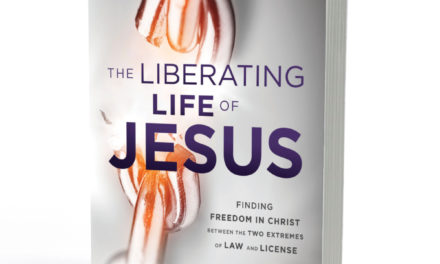Often, I hear believers say, “I’m just a sinner, saved by grace.” I understand why people say this. Clearly, we are all born sinners, and just as clearly, salvation is by grace. But are we still sinners? The question is not “Do we still commit sin?” But “Are we still sinners after salvation?” This is not a question of what we may do, but of what or who we are.
The emphasis of the New Testament in both word choice and verb tense is that as believers in Jesus we were sinners, but we are saints. Saints who can still sin, but saints nonetheless. In the relatively short piece of literature called the New Testament, the inspired text of Scripture labels believers as saints over sixty-three times!
Only two times are believers still referred to as sinners. First, Paul said, “Christ Jesus came into the world to save sinners; of whom I am chief” (1 Timothy 1:15). Paul used the present tense. However, in the immediate context, he was giving his testimony regarding his former life as a sinner before being saved. Second, in a revival context, James said, “Cleanse your hands, ye sinners” (James 4:8). Obviously, since we sometimes choose to sin, in that sense we are sinners. But in our true core, we are saints. That is how God views us, and that is the predominant emphasis of the New Testament word choice.
As saints we are able to sin, yet through Christ we are able not to sin. After salvation we are able to sin because we are not robots. But after salvation there is a remarkable provision: our spirits are regenerated with the divine nature and the Holy Spirit then indwells our regenerated spirits. It is through the provision of the indwelling Christ that we are able not to sin. When faith responds to the Spirit’s leadership in our lives, the Spirit imparts to us the victorious life of Christ who never sins. This is not sinless perfectionism, for our exercise of faith is sadly imperfect. But it is sinless provision—the indwelling life of Christ.
The new creation (2 Corinthians 5:17) is the new man (Ephesians 4:24), which consists of God’s seed (1 John 3:9), and, as such, is created after God in righteousness and true holiness. We are thus children of God. Because our spirits have the DNA of God, God identifies us as saints. Furthermore, the Holy Spirit streams the holy life of Jesus right into us, and so again, God calls us saints—holy ones. The Saint—Jesus himself, the holy one of God lives in us, and thus we are saints. We have the holy nature of Jesus in our core, and He has joined our spirits. The holy nature of God has been implanted in our spirits, and the Holy Spirit of God indwells us. We, therefore, are saints!
If we focus on our ability to still sin, it will lead us to commit sins. But if we focus on Jesus, He will lead us and enable us not to sin. My good friend, Mark Pittman, who is now with the Lord, said it this way:
I once was a sinner, but now I’m a saint;
Maturing I am, but perfect I ain’t.
We are not saints because we live saintly, we may live saintly because we are saints. If you keep viewing yourself as a sinner, it will lead to sinning. But if you view yourself as a saint, by God’s grace, it will lead to trusting in the leadership and power of the Holy Spirit. Regardless of your progress in spiritual maturity, your identity before God is that you are a saint! Believe it and, by God’s grace, experience the saintly life of Jesus.


John Van Gelderen
Post Author












If a born again person were still a sinner instead of an actual saint then there would have to be something more for God to do before entrance to heaven.
There isn’t anything more to be done.
It was finished at the cross.
Great thought!! Thanks for sharing!